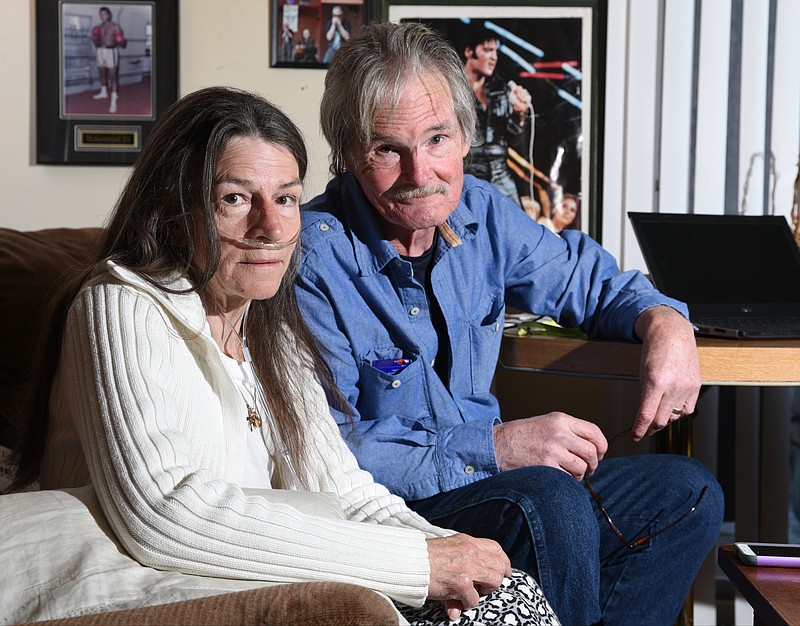
We all need help sometimes. Especially when life throws us a curve ball.
As journalists, we see it a lot - those life-wrecking curve balls - like fires, auto accidents, tornadoes, floods, family tragedies.
But we also see people's profound goodness and empathy. We see our community's strength when confronted with adversity.
That's why, as a newspaper, we've continued for more than a century to sponsor the Neediest Cases Fund. It is our way of helping ordinary people - our neighbors - who fall on hard times every once in a while.
Ordinary people like Pat and Diane Fitzpatrick, a retired couple who lost their savings and home in the 2008 stock crash, then survived a house fire in a duplex that left Diane on oxygen with permanently damaged lungs.
And people like Bradley Taylor, a veteran with a wife and two special-needs children, who was facing what seemed like an insurmountable hurdle to pay for a $3,300 car repair while he juggled work and other day-to-day bills.
Alicia Headrick, a single mom who had to leave work to care for a terminally ill daughter, needed rent money.
Eunice White needed $250. That's what it would take to pay off her debt to the Chattanooga Housing Authority and get a Housing Choice Voucher for a rental home so the 53-year-old mother of two could stop sleeping in shelters or on friends' couches.
There also were about 40 Rhea County workers who lost their jobs when Fuji Film and Goodman Manufacturing began planning to close up shop. They received help paying their utility bills and rent.
Darnell Turner, a 72-year-old struggling with diabetes and medical bills, received some help paying his $300 mortgage.
All thanks to you. Not us. But you, readers. You helped your neighbors. All we did, really, was tell you about them, and you did the rest.
The idea for Times Neediest Cases Fund was born on Christmas Day 1911 in New York, when Adolph S. Ochs, then-publisher of The New York Times and of The Chattanooga Times, went out for a walk after a big turkey dinner. On the walk, he encountered a shabbily dressed man on the street who told him he had just been given Christmas dinner at a Y.M.C.A. but had nowhere to sleep.
Ochs looked him over, so the story goes, decided he looked respectable and gave him a few dollars and his card.
"If you're looking for a job," he said, "come see me tomorrow."
The encounter made Ochs feel good, and he began thinking about charity and wondering if one man's feeling might be the basis for a city's goodwill, according to an online history of the New York fund - the forerunner of the Chattanooga Neediest Cases Fund.
The following holiday season, Ochs decided to publish articles about the Hundred Neediest Cases in New York, and make an appeal for help not with a direct request for money, but with the facts of those neediest lives. That first year, the campaign lasted nine days and collected $3,630.88 (about $88,517 in today's dollars) from 117 contributors. This year it continues in New York for its 105th year and has raised more than $288 million.
Here, at home, the Chattanooga Times' Neediest Cases fund was launched in 1914.
The Times - and later the Times Free Press - have been raising money for this fund for the 102 years since, running stories twice a week from Thanksgiving until the end of December about local people who need who need help in their struggle to overcome a tough patch in life.
Your donations (and ours) are collected online through the United Way and at the paper. And this year, as of Thanksgiving, the Chattanooga Times Free Press Neediest Cases Fund had helped 170 families and given more than $69,800.
We thank you, and we hope you'll help again this year.
Contributions, which are acknowledged in the newspaper, are accepted through Dec. 31.
